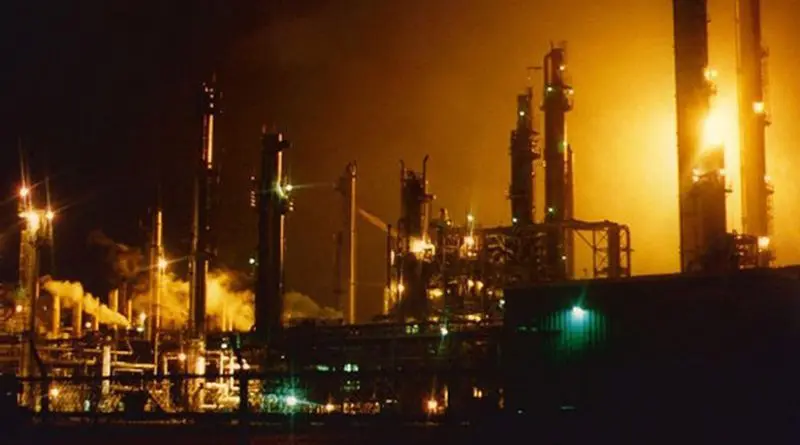Iran’s Move To Add To Oil Glut Sends Global Markets Reeling
By RFE RL
(RFE/RL) — Oil prices plummeted to $29 a barrel on an expected increase in Iranian oil exports as international sanctions are lifted this weekend, dragging stock markets sharply lower around the world on January 15.
With major indexes in New York, Shanghai, London and elsewhere plunging in a world awash in oil but lacking strong sources of economic growth, worried investors snapped up gold, bonds, and other safe-haven assets.
Iran’s re-entry into the world oil markets in a big way in coming weeks is only the latest development sending oil prices to levels not seen since the early 2000s. Primarily markets have dropped out of fear that China, once the fastest-growing consumer of oil and other commodities, has fallen into an economic slump.
But the prospect of the European Union and United States within days finally lifting economic sanctions that have held back Tehran’s crude sales for decades inspired panic among investors, who have begun to worry that nations like Russia, Azerbaijan, Venezuela, and Iraq which depend on oil sales for economic growth could be thrown into social turmoil or be bankrupted by further falls in prices.
“Iran’s going to put 500,000 barrels per day more on the market,” at a time when global supplies already exceed demand for oil by about 2 million barrels a day, said James Williams of WTRG Economics.
While India or Europe likely will step in to buy the Iranian oil, it doubtless will eat into some other country’s market share, possibly prompting more price drops and hardship for the oil producers, he said.
Big drops in energy prices and the shares of companies that produce oil have led the stock market’s downturn in recent weeks.
Major stock indices in Europe closed down more than 2 percent on January 15, while Wall Street stock indexes tumbled even more, capping their worst two-week start to the year on record.
The leading Moscow index dropped 5.8 percent, while Brazil’s Ibovespa index lost 2.4 percent. Battered Chinese stocks took another drubbing, with the Shanghai Composite Index closing down 3.55 percent.
The global crude benchmark Brent settled below $29 a barrel, capping a 13 percent decline for the week and adding to a loss of more than 70 percent since 2014.
Some oil experts said crude prices could fall as low as $20 a barrel before nations like Russia which have been pumping oil at record rates stop drilling and selling so much crude, creating a glut on world markets.
The collapse in oil prices already has created social unrest in Azerbaijan and other countries where the government depends on oil revenues to finance purchases of food and other essentials for the populace.
Further steep price declines risk plunging oil-producing nations and companies that took out debt — particularly debt denominated in the strengthening U.S. dollar — into insolvencies that lead to default, analysts say.
Besides the growing repercussions of plummeting oil prices, investors have been fretting about the dollar’s strength, the pace of rate increases planned this year by the U.S. Federal Reserve Bank, and a worldwide manufacturing recession.
Safe-haven assets have benefited from the worries. Yields on benchmark 10-year U.S. Treasury notes were poised to fall below 2 percent and U.S. gold futures rose 1.6 percent. German 10-year bond yields fell 4 basis points to 0.48 percent .
It was the third week of losses for world stock markets in what has so far been a dismal start of the year. European shares fell to their lowest since December 2014, hit by losses in commodity-related stocks. MSCI’s all-country world stock index fell 2.1 percent to levels last seen in July 2013.
On Wall Street, the century-old Dow Jones Industrial Average fell 2.6 percent while the blue-chip Standard & Poor’s 500 Index lost 2.42 percent, bringing losses on the U.S. market this year to more than 10 percent.
The steep losses of more than 3 percent in Chinese indexes raised questions about Beijing’s ability to halt a sell-off that has now reached 18 percent since the beginning of the year.

